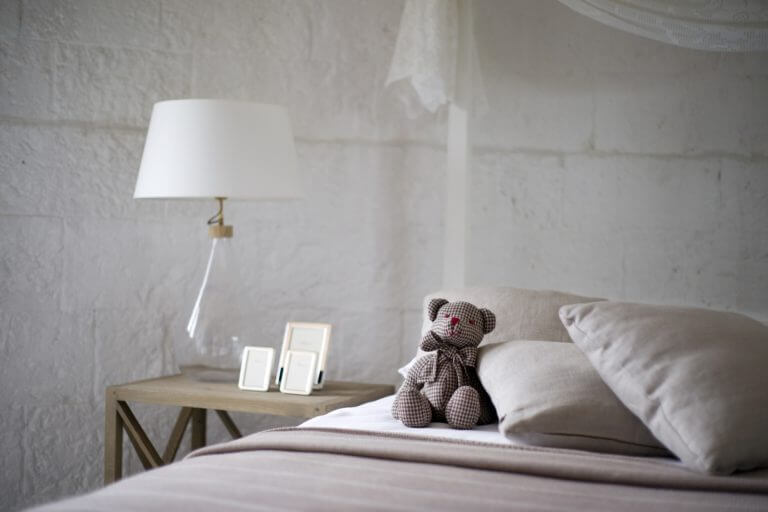Five Tips for a Restful Sleep
Restful sleep is essential to human survival, just as important as food, water and air. It is during those precious night hours that our bodies and minds refresh and rejuvenate to keep us optimally productive for the rest of the day. While the amount of sleep required varies across age groups and individual circumstances, teenagers and adults generally need between eight to ten hours each night. On an average, most people – regardless of age – are getting much less than this amount, what with increasingly busy schedules and habitual use of umpteen backlit devices such as smart phones, tablets and computers. So how can you ensure that the sleep that you DO get is deeply restful and restorative? Here are five tips worth trying, no matter what your age or circumstances:
Make the bedroom a distraction free zone
 You’ve probably heard it before and you’ll definitely hear it again from all kinds of experts, but gadgets such as televisions, computers and smart phones significantly interfere with restful sleep. As far as possible, avoid having such devices in the bedroom altogether, but if you must, then switch them OFF at least an hour before turning in. The blue light from backlit screens delays the onset of sleep so it is essential to steer clear of screen-time just before bed. If you are disciplined enough to keep cell phones out of the bedroom, use a regular old fashioned alarm clock to wake you up! Try minimising device usage before bedtime for a couple of weeks and you will notice the difference in the quality of sleep you get. It is also important to set up a calming atmosphere in the bedroom by keeping it clean and clutter-free. Opt for light shades of paint and decor whenever possible as these soothe the mind and are conducive to rest and relaxation.
You’ve probably heard it before and you’ll definitely hear it again from all kinds of experts, but gadgets such as televisions, computers and smart phones significantly interfere with restful sleep. As far as possible, avoid having such devices in the bedroom altogether, but if you must, then switch them OFF at least an hour before turning in. The blue light from backlit screens delays the onset of sleep so it is essential to steer clear of screen-time just before bed. If you are disciplined enough to keep cell phones out of the bedroom, use a regular old fashioned alarm clock to wake you up! Try minimising device usage before bedtime for a couple of weeks and you will notice the difference in the quality of sleep you get. It is also important to set up a calming atmosphere in the bedroom by keeping it clean and clutter-free. Opt for light shades of paint and decor whenever possible as these soothe the mind and are conducive to rest and relaxation.
Establish a wind-down routine
A great way to set yourself up for a good night’s sleep is to allow your mind and body some time to wind down from the busyness of the day. Maybe switching off your devices for the day can mark the beginning of your wind-down routine. Some relaxing things that could be part of this routine include a warm shower, some gentle yoga or meditation, reading or journal writing, and aromatherapy with a calming essential oil or scented candle of your choice. Customise your routine according to what works best for you but try to stick to a particular sequence of events every night as this will gradually train your brain to get into ‘sleep mode’ even before you hit the bed.
Get in sync with natural circadian rhythms
Our bodies are naturally attuned to sleeping and waking according to the cycles of night and day. Enhance the sleep you get by making sure your bedroom is completely dark. If needed, use dark curtains to block out external light or wear a light and comfortable eye mask. Similarly, immediately upon waking up, get as much natural light as possible. You can also turn on indoor lights to jumpstart your brain into ‘awake mode’.
Watch your food and drink
 Food and drink taken before bedtime significantly impacts the quality of sleep. Make sure you eat at least two or three hours before bedtime to give your stomach enough time to digest the food. If you must eat right before bed, dieticians Catherine Christie and Susan Mitchell in their book Smart Cookies Don’t Get Stale recommend consuming high-carb snacks that work to make you warm and sleepy. These include cereal, fresh fruit, dried fruit, fruit juice or toast with jam. In addition, herbal teas are great aids for a good night’s sleep. Try chamomile or lavender tea to relax before turning in.
Food and drink taken before bedtime significantly impacts the quality of sleep. Make sure you eat at least two or three hours before bedtime to give your stomach enough time to digest the food. If you must eat right before bed, dieticians Catherine Christie and Susan Mitchell in their book Smart Cookies Don’t Get Stale recommend consuming high-carb snacks that work to make you warm and sleepy. These include cereal, fresh fruit, dried fruit, fruit juice or toast with jam. In addition, herbal teas are great aids for a good night’s sleep. Try chamomile or lavender tea to relax before turning in.
Get professional help
If sleep evades you no matter what you try, it’s important to see a doctor or therapist to resolve underlying physiological or psychological issues. Certain medications can interfere with sleep, as can chronic stress or worry. Long term sleep disturbances and deprivation can lead to many more serious problems so it’s important to proactively deal with any issues and establish healthy sleep patterns for a balanced and happy life.




